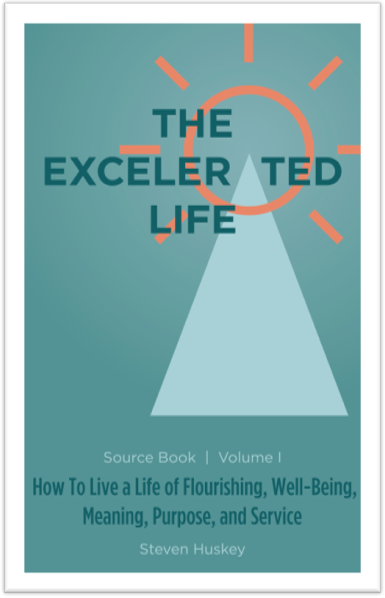Tolerating minor annoyances doesn’t mean they’ll simply fade away. They pile up. Each one seems minor on its own, but together they create an undercurrent of frustration and distraction. When you plug the leaks, you reclaim the energy you were losing to frustration, procrastination, and unfinished business. That freed energy can now be directed toward what truly matters.
[Title Photo by Andrea Piacquadio]
How Diana Stopped Tolerating Her Petty Annoyances
Diana came to me for coaching because of a BIG (Bold-Important-Gratifying) goal she had been pursuing for several years with little progress to show. But I found that her “pursuit” had resulted in little meaningful action. As we talked, I began hearing a litany of things that kept getting in her way.
Instead of dealing with her bills as they came in, she let them pile up on a side table. As a result, she was frequently late in paying them and had had her electricity cut off a couple of times. She “hadn’t had time” to take her car in for maintenance, ignoring the lights on her dashboard. This had resulted in a costly car repair. When her front porch light burned out, she put off replacing it. Until she tripped one night on her way into her house, ending up with a painful wrist sprain.

What became apparent to me was that a large part of Diana’s inability to make progress on her BIG goal was the fact that she was not dealing with all the minor annoyances in her life. By tolerating them, instead of gaining time, she was using up a lot of energy without anything to show for it.
So we began with Diana making a list of all the little (and some not-so-little) annoyances she had been tolerating, ignoring, or putting off. And one by one, she began addressing them.
The Leaky Faucet
There’s a drip in the kitchen sink. It isn’t loud, it isn’t urgent, but it’s steady. Every time you walk past, you hear it — drip, drip, drip, drip. You tell yourself you’ll fix it “one of these days,” but weeks turn into months. The sound becomes part of the background, an irritant you’ve grown used to. What you may not realize is that every drip is not just water wasted. It’s energy wasted, too. Small annoyances like a leaky faucet, that squeaky door, the unanswered email, an unspoken apology — they all drain us, little by little. But through Excelerated Response™, we turn off those drips, reclaim the energy we’ve been losing, and refuse to put up with what no longer serves us.
Why Excelerated Response™ Matters
As we discussed the things she had been ignoring and their consequences, Diana began to realize that tolerating minor annoyances doesn’t mean they’ll simply fade away. No, they pile up. Each one seems minor on its own, but together they create an undercurrent of frustration and distraction. It’s like having a slow leak in your house; you might ignore it for a while, but eventually the drip, drip, drip does damage.
Think of the squeaky door you keep meaning to oil, the pile of unopened mail on the counter, or the phone call you’ve put off for weeks. None of these is life-threatening, but together they weigh on your mind. They distract you in the background, stealing energy you could use elsewhere.
When you practice Excelerated Response™, you plug those leaks. Fixing the squeaky hinge, clearing the mail pile, or making that phone call may take only minutes, but the relief you feel is immediate. You reclaim the energy you were losing to frustration, procrastination, and unfinished business. That freed energy can now be directed toward what truly matters — pursuing goals, nurturing relationships, and caring for your well-being.
There’s also a psychological shift that takes place. Every time you deal with a toleration, you remind yourself that your life is within your influence. You reinforce the belief that you are capable of shaping your circumstances instead of merely enduring them. This builds confidence, momentum, and peace of mind.
What Excelerated Response™ Looks Like
Living with Excelerated Response™ doesn’t mean rushing around frantically fixing everything at once. Instead, it’s a steady practice of noticing what you’ve been putting up with and choosing to deal with it before it drains you further. Sometimes that means oiling the squeaky hinge or sorting out the overflowing junk drawer. Other times it means having the conversation you’ve been avoiding, setting a boundary, or canceling a commitment that no longer fits.
You don’t need to clear every tolerance in a single day, but you do commit to clearing them steadily. With each small response, you reduce hidden friction and lighten your load. Over time, your life feels smoother, your environment more supportive, and your energy less scattered.
Diana discovered that the key is not perfection but progress. One step at a time, she began changing her life so fewer things were draining her, and more things were actively supporting the person she was becoming.
The Power of Small Wins
One of the surprising truths about Excelerated Response™ is that small actions often create big shifts. We tend to imagine that meaningful progress requires massive effort, but in reality, momentum is built in tiny steps.
Think of what happens when you finally sew the loose button on your favorite shirt, replace the burned-out light bulb in the hallway, or unsubscribe from the emails you never read. These are small tasks, but completing them clears space, reduces irritation, and frees your attention.
Each time you respond to one of these tolerations, you get a small win. And those wins add up. Instead of feeling weighed down by dozens of nagging details, you begin to feel lighter and more in control. With fewer distractions tugging at you, your mind is clearer, your focus sharper, and your mood brighter.
Over time, this steady practice reshapes your environment and your inner state. Small annoyances no longer drag you down. A growing sense of order, relief, and capability lifts you up. The cumulative effect of small wins becomes a powerful engine for positive change.
Diana began a practice of specific steps to deal with all the annoyances she had been ignoring. As she cleared these up, her energy shifted. She was finally able to take the steps toward her BIG goal that had seemed too difficult before. Within six months, she was on the verge of reaching the goal she had dreamed of for years. And she built the habit of dealing with things as they came up, a BIG step in itself. Here’s how she did it.

Taking Action: How to Stop Tolerating Petty Annoyances
Dealing with the little annoyances, frustrations, and tolerations that accumulate over time is more than just a mental exercise. It’s an intentional practice of reclaiming energy, focus, and peace of mind. Here’s a clear, step-by-step approach you can start using today:
- Recognize the things you are tolerating. Start by paying attention. What are the recurring irritations in your daily life — the small drains on your time, patience, or mental space? Awareness is the first step toward change.
Example: You notice feeling frustrated every time you sit at a cluttered kitchen counter in the morning. That irritation is a toleration waiting to be addressed. - Make a list. Write them down. Seeing them on paper transforms vague annoyances into
concrete items you can tackle. It also gives you a clear picture of how many “little leaks” are quietly draining your energy.
Example: You jot down small annoyances: a leaky faucet, unopened emails piling up, the garage door squeaking, and a friend who consistently arrives late. Seeing them all together gives clarity and focus. - Identify the benefits and costs of maintaining your tolerations. Ask yourself, “What am I gaining by tolerating this?” Sometimes tolerations exist because they avoid confrontation or feel easier to ignore. Then ask, “What am I losing?” Count the mental clutter, stress, or wasted time. It’s likely the cost outweighs any perceived benefit.
Example: You tolerate the squeaky garage door because it seems minor, but the constant noise subtly irritates you each morning, setting a negative tone for your day. The cost outweighs the convenience of ignoring it. - Recognize the things you can change and the things you can’t. Be honest with yourself. Some annoyances are within your control, others aren’t. Separating these helps you focus your energy effectively and avoid unnecessary frustration.
Example: You can repair the garage door, but you can’t control a friend’s punctuality. Understanding this distinction prevents wasted effort and frustration. - Resolve the ones you can. For the items within your control, take explicit action. Fix it, delegate it, or communicate it. Even small steps like clearing a cluttered desk or addressing a minor conflict send a powerful message: you’re taking charge of your life rather than letting it control you.
Example: You oil the garage door hinges, finally stopping the squeak. You clear out old papers from your desk. Taking action, even on small items, immediately lightens your mental load. - If you can’t fix it, change your perspective. When something is truly beyond your control, shift how you think about it. Reframing a toleration can reduce its emotional weight. Sometimes accepting what is, rather than resisting, is the most powerful response.
Example: Since you can’t make your friend arrive on time, you shift your perspective: you see it as extra quiet time for reading while waiting, rather than a personal annoyance. - Manage your environment. Your surroundings often influence which tolerations persist. Adjust your space, your schedule, or your routines to prevent triggers and reduce recurring annoyances before they escalate.
Example: You place commonly used tools in an accessible spot in the garage, reducing friction and preventing future frustrations. You also set up a simple email folder system to avoid overwhelm. - Don’t just remove the toleration, remove the root cause. It’s not enough to treat the symptom. Ask why this issue appeared in the first place and what underlying patterns or habits allowed it to take hold. Addressing the root ensures lasting change and prevents the toleration from resurfacing.
Example: Beyond fixing the squeaky garage door, you inspect and lubricate all other moving parts, ensuring the problem won’t recur. For the cluttered kitchen, you identify why clutter accumulates and establish a daily 5-minute reset habit.
Start small. Pick one toleration this week, follow these steps, and notice how much lighter and more focused you feel. Repeating this practice consistently is how you build an environment and life free of small, unnecessary drains.
Your Turn: Begin Today
Just as Diana did, imagine how much lighter your life could feel if you stopped tolerating those energy-drainers and started responding with clarity and purpose. Every time you fix a small annoyance, you’re not just tidying up, you’re reclaiming your power and building momentum toward the life you truly want.
So here’s your invitation:
- Make your tolerations list today. Don’t overthink it — just jot down what comes to mind.
- Choose one item from the list to remove this week. Small wins add up.
- Notice the freedom that comes with every completed action.
Don’t wait for the “perfect time.” Begin now, right where you are, to stop tolerating petty annoyances. The first step you take today creates the space for bigger steps tomorrow. And that’s another step on the path to embracing your Excelerated Life™!
As you go about your day, jot down any annoyances you’re tolerating.
What’s the first step you can take to begin dealing with the list? What could you do today?
Share your comments by leaving a post below.
Excelerated Response™ – dealing with the things you’ve been tolerating – is one practice for creating your Excelerated Life™, a life of flourishing and well-being, and a life of meaning, purpose, and service.
Read more about the Excelerated Life™.
Resources:
Leonard, Thomas. The 28 Laws Of Attraction. New York: Scribner, 1998.
Miedaner, Talane. Coach Yourself To Success. Lincolnwood, IL: Contemporary Books, 2000.
This blog post includes research information provided by ChatGPT, an AI language model developed by OpenAI. The content was generated with AI assistance and is intended to provide information and guidance. Please note that the suggestions are not official statements from OpenAI. To learn more about ChatGPT and its capabilities, you can visit the OpenAI website.


